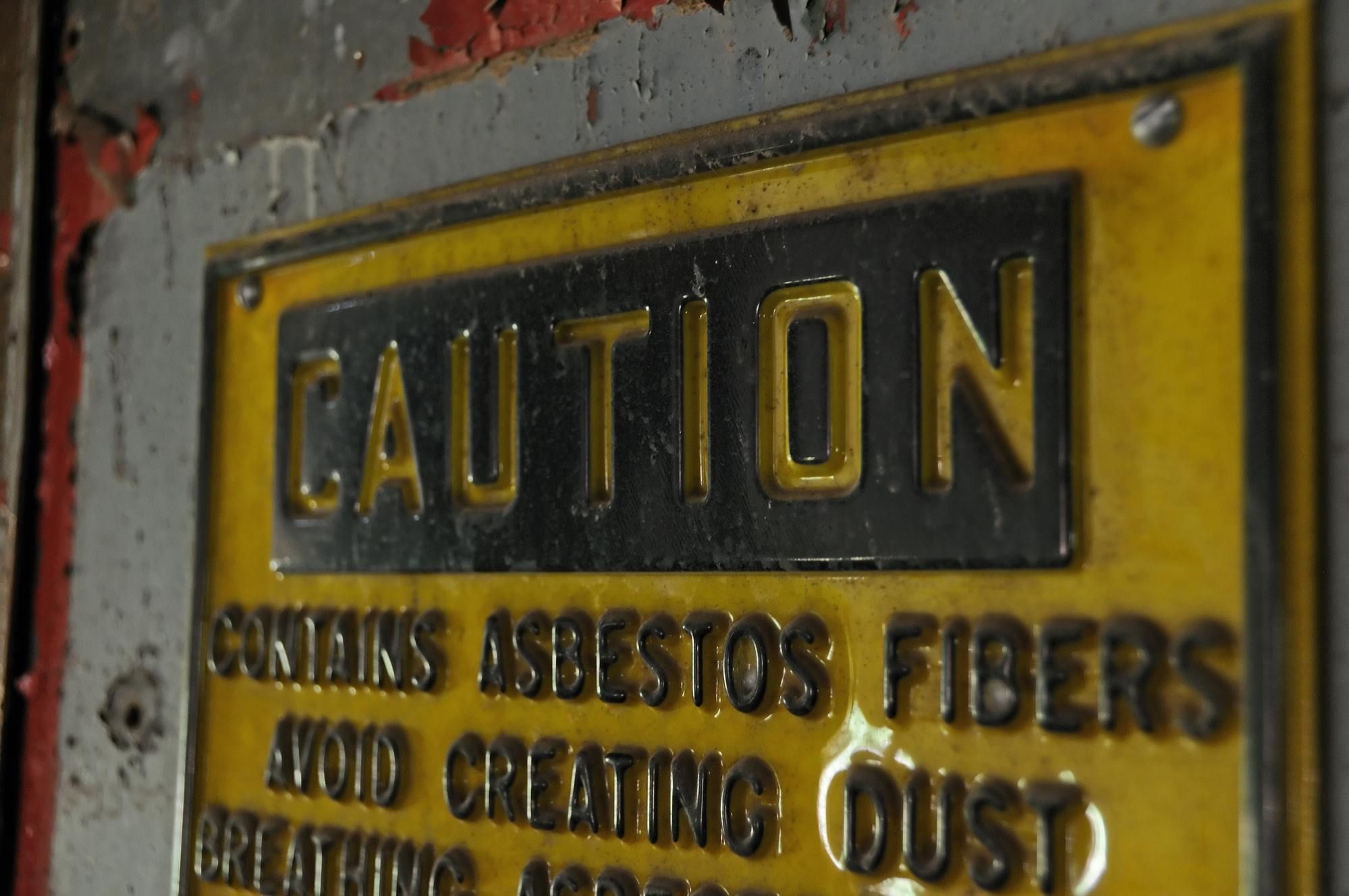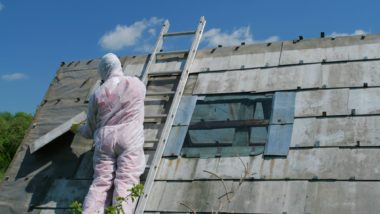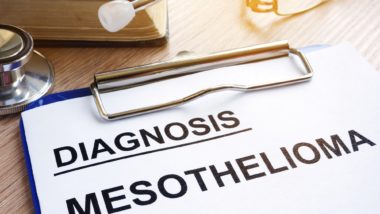Top Class Actions’s website and social media posts use affiliate links. If you make a purchase using such links, we may receive a commission, but it will not result in any additional charges to you. Please review our Affiliate Link Disclosure for more information.
Researchers and medical experts don’t yet know what causes esophageal cancer, a disease that will claim an estimated 16,170 lives in the U.S. this year, according to the American Society of Clinical Oncology. Smoking and drinking alcohol are two of the biggest risk factors, but some studies have noted a possible association with exposure to asbestos. While many associate asbestos to lung cancer or mesothelioma, it is tied to many cancers.
Less common in the U.S. than it once was, esophageal cancer affects mostly older Americans and makes up just about 1% of all cancers nationwide. The five-year survival rate of esophageal cancer, however, is less than 50% even when caught in the early stages. At the latest stage, the survival rate dips down to 5%.
For anyone suffering from esophageal cancer, or caring for someone who is, some basic information about the disease can be helpful.
What is Esophageal Cancer?
The esophagus is the passageway that connects the mouth to the stomach.
At a cellular level, esophageal cancer is believed to stem from mutations in the DNA of esophageal cells that cause them to multiply more rapidly and die more slowly than normal. That creates an accumulation of cells, which then become tumors, according to Healthline, a consumer health information website. The tumors grow in the lining of the esophagus and eventually expand into the esophageal wall and out into the channel that carries food and liquid to the stomach.
Esophageal cancer is a stealth disease that often spreads undetected because it doesn’t cause noticeable symptoms until it’s in the mid to later stages. Once the tumors have grown to the point they begin to cause other problems, MD Anderson Cancer Center says, a person suffering from esophageal cancer might experience difficult or painful swallowing, pain, pressure or burning in the throat or chest, indigestion or heartburn, weight loss and loss of appetite, black tar-like stools, vomiting, anemia, hoarseness or chronic hiccups or cough, pneumonia or high levels of calcium in the blood.
There are two types of esophageal cancer – adenocarcinoma and squamous cell carcinoma –named for the types of cells and the exact area they develop in, the MD Anderson Cancer Center explains. Adenocarcinoma is the most common among U.S. patients and it typically occurs in the lower part of the esophagus near the stomach. Squamous carcinoma usually occurs in the middle and upper parts of the esophagus.
How is Esophageal Cancer Diagnosed?
Esophageal cancer is usually diagnosed through a combination of routine physical examinations, imaging tests including X-rays, CAT scans, MRIs, PET scans, endoscopies – when doctors guide a tiny camera through the esophagus to examine it from the inside – and biopsies of esophageal tissue or tumors, the American Society of Clinical Oncology says.
What Causes Esophageal Cancer?
The precise cause of esophageal cancer has not been discovered, but certain conditions and risk factors seem to play a role in developing it.
Heartburn, or acid reflux, occurs when stomach acids breach the esophagus. Long-term cases of reflux can cause the cells at the end of the esophagus to take on a “pre-malignant condition” that can lead to esophageal cancer, the MD Anderson Cancer Center says.

People between the ages of 45 and 70 have the highest risk of developing the disease and men are three to four times as likely as women to get it, according to the American Society of Clinical Oncology.
Can Esophageal Cancer Be Caused By Asbestos?
Asbestos is a dangerous mineral that has been found to be a human carcinogen—that is, a substance capable of causing cancer in humans. Asbestos was once commonly used in insulation building products, but during the early 20th century it was discovered that breathing in the material caused scarring in the lungs.
Asbestos use was eventually phased out and by the latter part of the century, the material was being removed from buildings if and when it was discovered during renovation projects. However, many older buildings still contain asbestos to this day, and despite the regulations on this mineral, it is still found in the construction and repair industry, often during renovation products.
Even with precautions, “there is no ‘safe’ level of asbestos exposure for any type of asbestos fiber,” the Occupational Safety and Health Administration notes.
Long-term exposure to asbestos has been linked to lung cancer and mesothelioma, cancer of the larynx, and ovarian cancer, according to the American Cancer Society.
Though a few studies have pointed to a tenuous “association” between asbestos exposure and instances of esophageal cancer, overall the scientific research has found little evidence to suggest a direct cause-effect relationship, a report by the National Academy of Sciences determined.
How to Reduce the Chance of Cancer
Esophageal cancer recently claimed another victim, British Baking star Luis Troyano, who was only 48 when he reportedly passed less than one year after undergoing surgery for the disease.
Those who are concerned about esophageal cancer and other cancers can take steps to reduce their risk. According to Everyday Health, 45% of all cancer deaths in the United States were caused by lifestyle behaviors and habits that can be changed.
Everyday Health says that major factors, including weight and exercise, as well as tobacco and alcohol use, appear to have the biggest effect on cancer risk in individuals. In addition, exposure to an excessive amount of sunlight, workplace chemicals, including asbestos, and viruses have an effect, say experts. The same experts note that efforts to reduce one’s cancer risk is a complex task.
“We live in a very complicated society where we have many demands on our time, and gaining access to healthy environments is a challenge,” a senior researcher with the American Cancer Society told reporters. “This is really going to involve a comprehensive approach at changing multiple sectors in order to allow people to have access to information as well as to live in healthier environments.”
In addition to taking individual efforts to reduce cancer risks, including maintaining a healthy weight, exercising, and refraining from tobacco and alcohol use, experts say policymakers need to stand up to help communities become healthier. Those working in the medical field can also help individuals facing cancer risks address issues that may help them avoid the disease.
Should You File an Esophageal Cancer and Asbestos Lawsuit?
A growing number of patients are coming forward with allegations that exposure to asbestos has led to their diagnosis with various types of asbestos-related cancer, including esophageal cancer. Plaintiffs have filed lawsuits against companies that have allowed this exposure to take place without proper precautions or warnings about the risks, such as their workplaces. Indeed, employers are required to protect workers by providing personal exposure monitoring to consistently assess the risk, as well as hazard awareness training.
Patients who have been exposed to asbestos and later developed esophageal or lung cancer might consider filing legal action against the parties responsible for exposing them to asbestos. Of course, filing a lawsuit cannot take away the pain and suffering caused by a cancer diagnosis, nor can it bring a loved one back to life, but it can at least help to alleviate the financial burden too often incurred by medical expenses, lost wages, and more.
Filing a lawsuit can be a daunting prospect, especially while dealing with a cancer diagnosis, so Top Class Actions has laid the groundwork for you by connecting you with an experienced attorney. Consulting a qualified, experienced attorney who has worked on cases involving asbestos-related illnesses could be helpful in determining if you have a claim, navigating the complexities of litigation, and maximizing your potential compensation.
Join a Free Asbestos Cancer Class Action Lawsuit Investigation
If you or a loved one have been exposed to asbestos and were subsequently diagnosed with the following asbestos-related illnesses:
- Mesothelioma
- Lung cancer
- Larynx cancer
- Esophageal cancer
- Colon cancer
- Pulmonary asbestosis
- Asbestos-related pleural disease,
… then you may be eligible to file an asbestos lawsuit to seek compensation for your medical expenses, lost wages, pain and suffering, and other losses you have experienced.
If your loved one has passed away, you may also be able to file a wrongful death lawsuit to seek compensation for funeral expenses and other costs associated with your loved one’s illness.
Obtain a free case review now by filling out the form on this page.
An asbestos attorney will contact you if you potentially qualify to file an asbestos lawsuit or class action lawsuit. There is no cost or obligation associated with this case evaluation.
ATTORNEY ADVERTISING
Top Class Actions is a Proud Member of the American Bar Association
LEGAL INFORMATION IS NOT LEGAL ADVICE
Top Class Actions Legal Statement
©2008 – 2024 Top Class Actions® LLC
Various Trademarks held by their respective owners
This website is not intended for viewing or usage by European Union citizens.
Get Help – It’s Free
Join a Free Asbestos Cancer Class Action Lawsuit Investigation
If you qualify, an attorney will contact you to discuss the details of your potential case at no charge to you.
PLEASE NOTE: If you want to participate in this investigation, it is imperative that you reply to the law firm if they call or email you. Failing to do so may result in you not getting signed up as a client or getting you dropped as a client.
E-mail any problems with this form to:
Questions@TopClassActions.com.
Oops! We could not locate your form.












